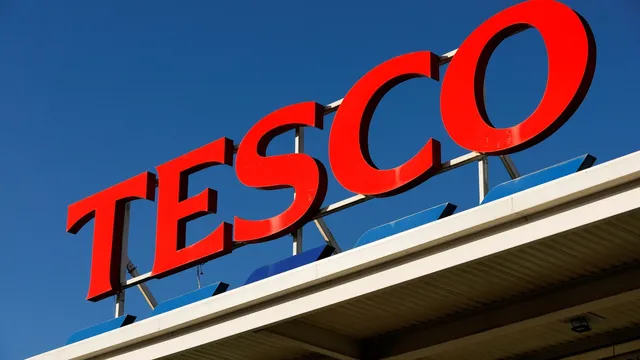
Tesco reduces profit forecast as supermarket competition intensifies
2025-04-10 11:55- Tesco forecasts adjusted operating profit between £2.7 billion and £3.0 billion for the current financial year, a reduction from last year's £3.1 billion.
- The competitive landscape has intensified, especially following Asda’s significant price cut commitment, causing Tesco's shares to drop by 6%.
- The company is implementing cost-cutting measures of £500 million to improve its competitive position and customer value.
Express your sentiment!
Insights
In the United Kingdom, Tesco has announced a reduction in its profit forecast amid a highly competitive supermarket landscape. The grocery giant's latest guidance points to an expected adjusted operating profit between £2.7 billion and £3.0 billion for the current financial year, down from £3.1 billion from the previous year. This shift comes in response to a significant intensification of competition within the supermarket sector, following aggressive pricing strategies from rivals, particularly Asda, which has vowed to offer its most substantial price cuts in the last 25 years. The announcement comes as Tesco reported a 3.5% increase in annual revenues, amounting to £63.6 billion, despite a slight decrease in profit before tax of 3.2% to £2.2 billion. Furthermore, Tesco's market share has improved to 28.3%, the highest it has been since 2016, indicating a strong position even amidst growing pressures from competitors. The Chief Executive, Ken Murphy, highlighted the company's commitment to maintaining customer value, suggesting initiatives to enhance competitiveness in the wake of these market challenges. The increase in grocery competition stems from broader economic pressures, including tax hikes and increased minimum wages imposed by the Labour Government, which have driven up operational costs for many retailers, including Tesco. In response, the company has announced a plan to cut costs by £500 million to better align its pricing strategies and remain competitive. Analyst Clive Black from Shore Capital expressed that while the situation may not currently constitute a full-blown price war, Tesco's actions imply that it is preparing aggressively to protect its market position and customer base in light of external economic factors and intense rivalry.
Contexts
The UK supermarket price war has evolved significantly in recent years, marked by intense competition among major retailers. This battle for market share has been characterized by aggressive pricing strategies, promotional campaigns, and an increasing focus on customer loyalty. The price war intensified due to factors such as economic pressures, shifting consumer behavior, and the entry of discount chains like Aldi and Lidl, which have successfully captured a significant portion of the market by offering lower prices on a wide range of products. As a result, established supermarkets such as Tesco, Sainsbury's, and Asda are compelled to match these competitive prices while also improving the quality of their offerings to retain customer loyalty. In the wake of the COVID-19 pandemic, consumer shopping habits have shifted dramatically, with many preferring to shop in-store rather than online, as many had done during lockdown. Supermarkets have adapted their strategies, focusing on in-store promotions, price matching, and bundled offers to attract price-sensitive shoppers. Additionally, many supermarkets have invested in enhancing their online shopping platforms to cater to the ongoing demand for convenience, reflecting a dual approach to meeting customer needs and preferences. As the price war continues, financial pressures are mounting for many retailers. Increased costs related to supply chain disruptions, inflation, and labor shortages pose challenges for traditional and discount supermarkets alike. Many retailers have had to navigate these issues while trying to maintain favorable pricing, leading to a precarious balance where profit margins are continuously being squeezed. Furthermore, the introduction of environmental sustainability practices and new regulations also impacts pricing strategies, as retailers strive to reduce their carbon footprints and meet consumer demand for ethical sourcing and sustainable products. Looking forward, the landscape of the UK grocery sector is expected to remain competitive. As supermarkets innovate their business models, the emphasis on price competitiveness is likely to persist. Retailers may increasingly rely on technology and data analytics to better understand consumer behavior and improve operational efficiencies. The ongoing quest for the optimal balance between pricing strategies and customer satisfaction will play a crucial role in determining the future dynamics of the UK supermarket price war.